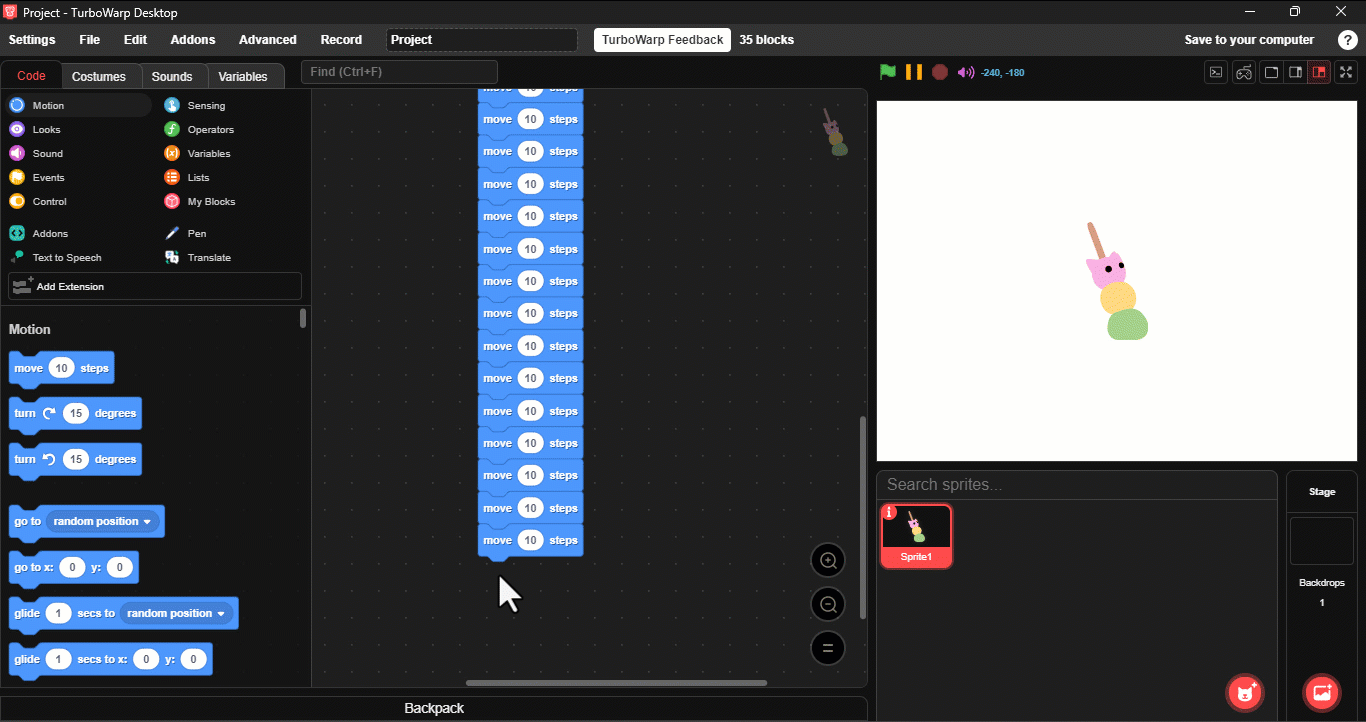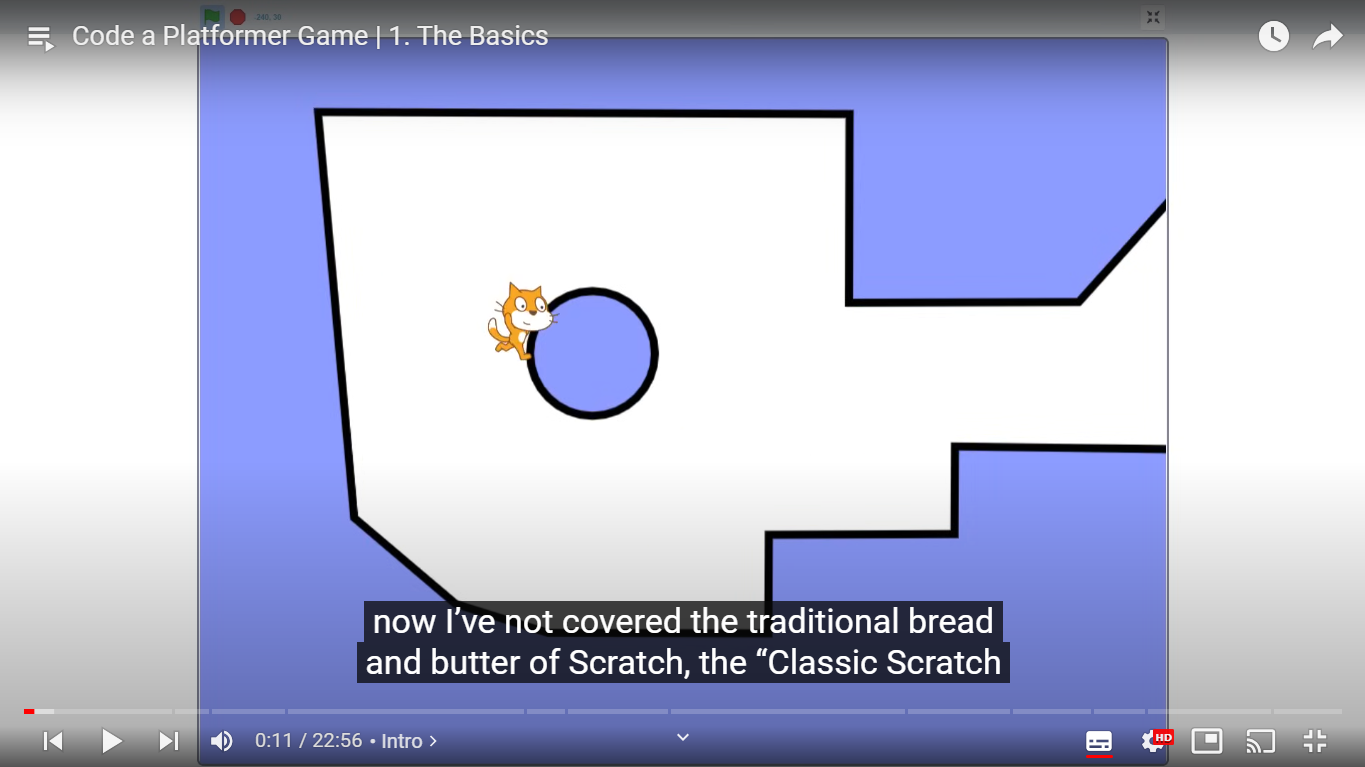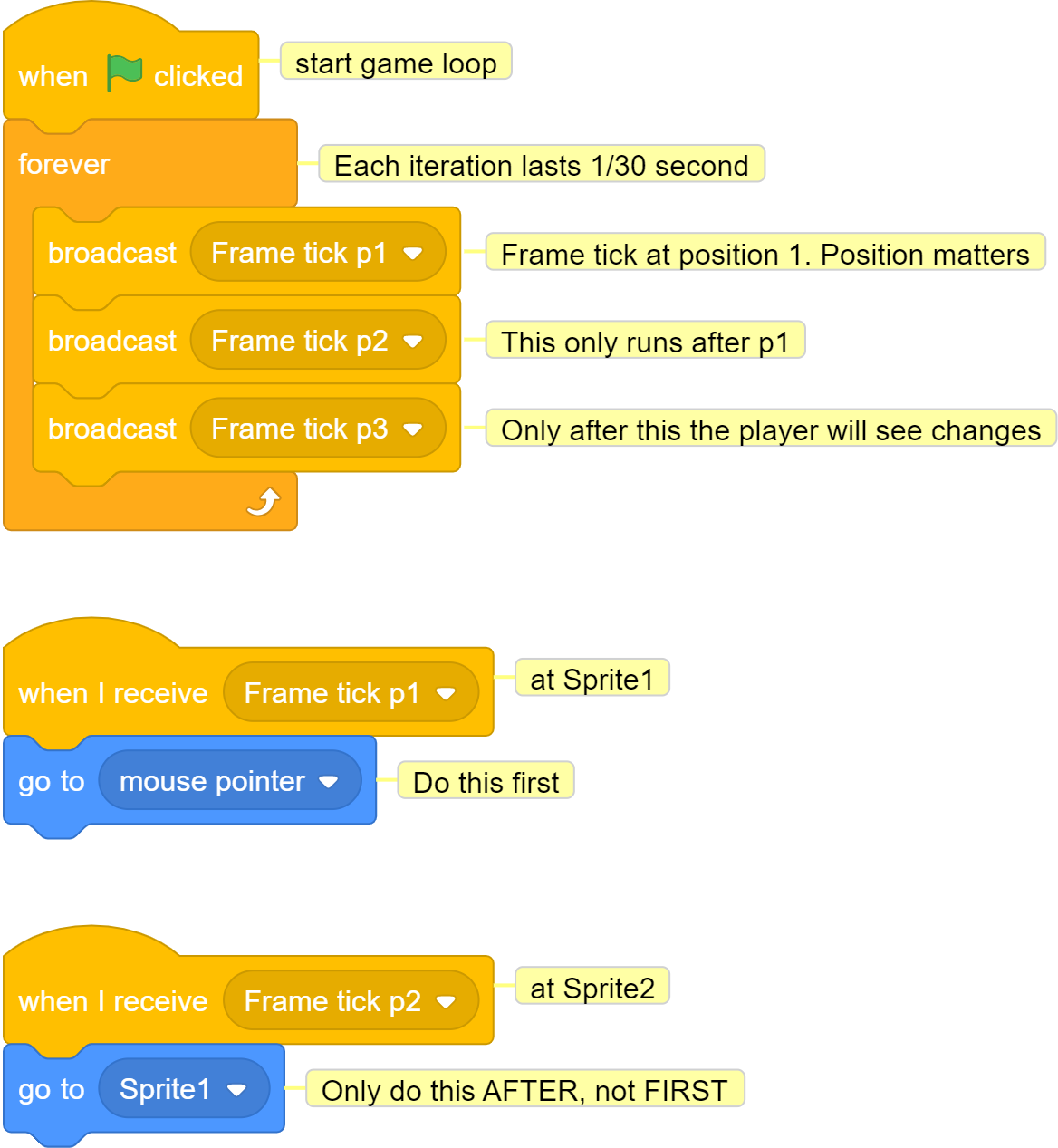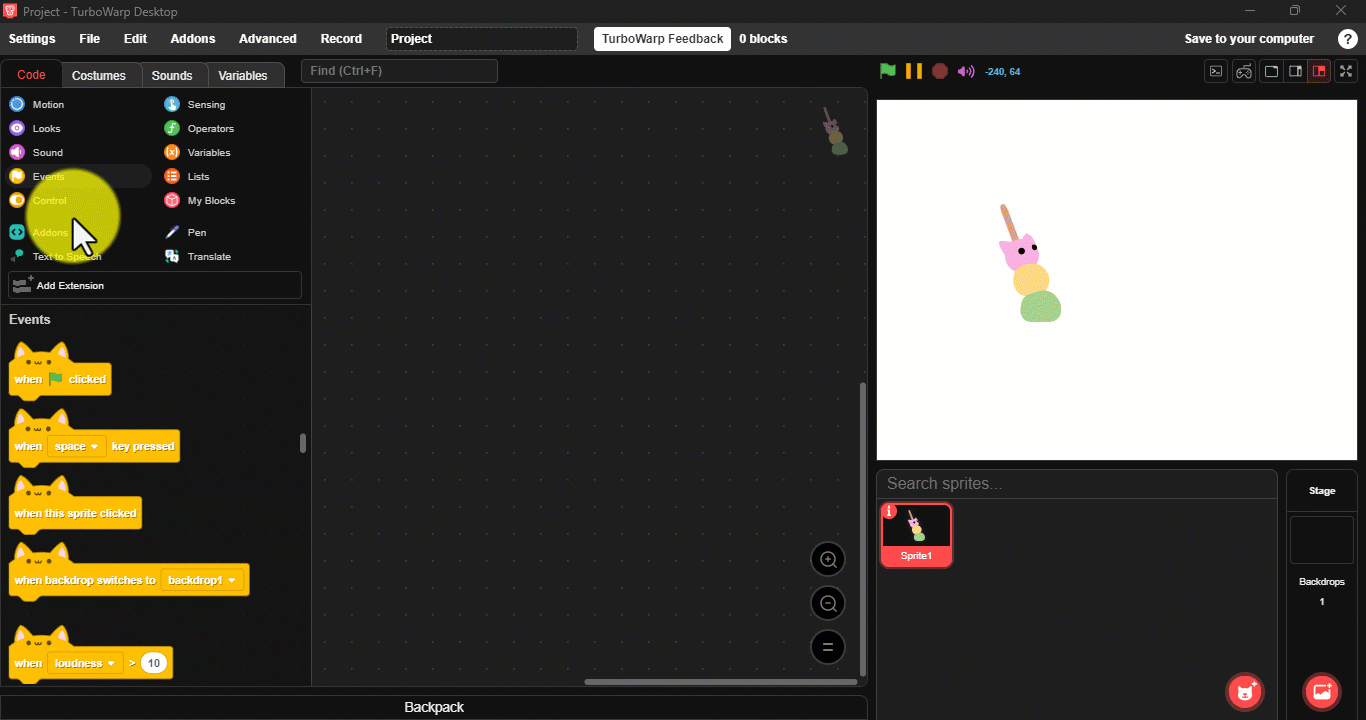Advice for Beginner Coders
Learn from the best: Griffpatch!
Are You Ready to Become a Great Coder?
Do you want to be a good coder? Do you aspire to build large and highly-anticipated games that captivate players? Perhaps you dream of making thousands of dollars a month through your coding skills? If so, it's essential to start your journey somewhere small and manageable. I highly recommend beginning with Scratch, a friendly and accessible programming language designed specifically for newcomers.

One of the standout figures in the Scratch community is Griffpatch, who is renowned for creating some of the best Scratch projects ever seen. Not only does he produce fantastic content, but his tutorials are also crafted in a way that helps you master coding while enhancing your English skills. Learning from Griffpatch is like hitting two birds with one stone — improving your programming and language fluency at the same time!
Start with the most beginner-friendly tutorial series by Griffpatch: Code a Platformer Game! His tutorials are not only informative but also entertaining. His engaging teaching style and organized coding processes will keep you hooked and inspire you to learn more about programming.

In his own words, Griffpatch expresses his passion: "Hello fellow Scratchers, I'm Griffpatch and I love all kinds of Scratch projects, especially platformers, but until now I've not covered the traditional bread and butter of Scratch, the Classic Scratch Platformer. There may be no scrolling or complex lists here, but we have great expectations because we are laying solid foundations to build up something more like this! [...] There's a lot to see, from the solid platforming, to wall sliding. Scratch cat's feet matching the slope he is standing on, did you see that? Moving platforms, and lava, wall jumping and level navigation. Oh wow!" His enthusiasm is infectious, and it's clear he wants to share his knowledge with the next generation of coders.
Tips You Learn from This Tutorial
I encourage you to watch the tutorials, so I will not elaborate too much about these tips. Instead, let me provide a sneak peek into the invaluable insights you can gain:
Tip 1: Understand Game Loops
Have you ever wondered why when a sprite moves, and another sprite tries to reposition at that sprite, all in a forever loop, there's a perplexing glitch that causes them to desync? This is where game loops come into play! Understanding how game loops function can save you from these common pitfalls and help you create smoother gameplay experiences. A solid grasp of game loops will allow you to control the flow of your game, ensuring that all actions and animations are executed in a harmonious sequence. This foundational knowledge is critical as you advance in your coding journey, especially in game development. Game loops are mentioned in Episode 2 of the Griffpatch series mentioned above.
when flag clicked
//start game loop
forever
//Each iteration lasts 1/30 second
broadcast(Frame tick p1 v)
//Frame tick at position 1. Position matters
broadcast(Frame tick p2 v)
//This only runs after p1
broadcast(Frame tick p3 v)
//Only after this the player will see changes
when I receive (Frame tick p1 v)
//at Sprite1
go to (mouse pointer v)
//Do this first
when I receive (Frame tick p2 v)
//at Sprite2
go to (Sprite1 v)
//Only do this AFTER, not FIRST

Tip 2: Manage Variables Like a Pro
Variables are essential in programming as they store data that can change throughout your game. Learning to manage variables effectively is crucial for creating dynamic and engaging gameplay. Here are some key points to remember:
- Use Descriptive Names: Name your variables in a way that reflects their purpose. For example, instead of using "x" or "y," use "playerScore" or "enemyHealth" to make your code more readable. This practice helps you and others understand your code better.
- Initialize Your Variables: Always initialize your variables. This prevents bugs caused by using undefined values. For instance, setting
Score = 0;at the start is a good practice that ensures your game logic remains robust. - Scope Matters: Understand the scope of your variables. Parameters can only be accessed in a specific function, "for this sprite only" variables can only be modified in one sprite but can still be read by others (clones do have their own, but their "for this sprite only" variables cannot be accessed by other sprites) while global variables can be accessed throughout your program. Use "for all sprites" variables to maintain a high-level overview of game data, making your code more efficient.
- Debugging: When your game doesn’t work as expected, it might be due to incorrect variable usage. Debugging can involve checking the values of your variables at runtime to identify where things are going wrong.
Tip 3: Manage the Code Flow
Managing the flow of your code is crucial for ensuring that your game runs smoothly and efficiently. It involves organizing your code to handle different tasks and events in a logical order. Effective code flow management helps in avoiding issues like bugs and performance problems. Here are a few tips to manage the code flow:
- Use Functions and Procedures: Break down your code into smaller functions or procedures that handle specific tasks. This makes your code more modular and easier to manage. Functions not only make your code cleaner but also promote reusability.
- Implement Event Handlers: Use event handlers to respond to user inputs and game events. This helps in keeping your code organized and ensures that different parts of your game respond correctly to interactions. Understanding how to use event handlers effectively can enhance the interactivity of your games.
- Optimize Code Execution: Ensure that your code runs efficiently by avoiding unnecessary calculations and optimizing loops. This helps in maintaining a smooth gameplay experience, especially as your projects become more complex.
- Test and Debug: Regularly test your code to identify and fix any issues. Debugging tools can help in tracking down and resolving problems in the code flow. Remember, debugging is not just a chore — it's a valuable learning opportunity!
Effective management of code flow will not only improve the performance of your game but also make your codebase easier to maintain and expand. Keep practicing and refining your code management skills, as they are essential for becoming a proficient coder!
Tip 4: Catch Bugs and Remove Them
Bugs are an inevitable part of programming, and learning how to catch and fix them is essential for becoming a proficient coder. Here are some strategies to help you effectively debug your projects:
- Use Debugging Tools: Familiarize yourself with debugging tools available in your coding environment. These tools can help you step through your code, set breakpoints, and inspect variables to find issues. Embrace these tools as your allies in the coding battle!
- Print Statements: Sometimes, the simplest method is to add print statements to your code. This allows you to see the flow of execution and check the values of variables at different points in your program. It's like having a magnifying glass to scrutinize your code!
- Isolate Problems: When you encounter a bug, try to isolate the part of the code that is causing the issue. Comment out sections of code to narrow down where the problem lies. This approach helps you pinpoint the exact source of the bug.
- Test Incrementally: Build and test your code in small increments. This makes it easier to identify when and where a bug is introduced. Incremental testing reduces the chances of being overwhelmed by complex issues.
- Learn from Errors: Every bug you encounter is an opportunity to learn. Take the time to understand what caused the issue and how to prevent it in the future. This mindset will help you grow as a coder and make you more resilient.
Developing strong debugging skills will not only make your coding process smoother but also increase your confidence in tackling complex projects. Remember, every coder faces bugs — what matters is how you handle them! Embrace the challenge, and don't be discouraged by setbacks.

If I'm Familiar Enough with Scratch, Where Do I Need to Go Next?
Once you feel comfortable with Scratch and want to take your coding skills to the next level, it's time to explore other programming languages that will broaden your horizons and deepen your knowledge. A great starting point is Python. Its syntax is user-friendly, making it ideal for beginners. Python's versatility allows you to engage in web development, data analysis, artificial intelligence, and much more!
After mastering Python, consider diving into JavaScript for web development. With JavaScript, you can create interactive websites that respond to user actions and provide dynamic content. Alternatively, if you're interested in building mobile applications, Java is a solid choice due to its extensive use in Android app development.
For those looking to work closer to the hardware level, learning C or C++ can open doors to systems programming and game development. Both languages offer control over system resources, making them powerful tools for performance-critical applications. If you're feeling adventurous, why not try creating websites using HTML? Learning HTML and CSS will allow you to structure and style your web pages, providing a foundational understanding of web design.
The options are endless, and each language has its unique strengths! The key is to stay curious, keep exploring, and most importantly, have fun along the way. Your coding journey is just beginning, and the skills you build now will pave the way for countless exciting opportunities in the future.